They are Off and On the Reservation -- Jews Write the Laws of War and Write the Comedy shtik (שטיק) for Starvation
Impeached? Joe Zio "Jewish Grandkiddos" Biden should be shot. Zyklon Blinken and his Minyan Need to be Drawn and Quartered.
This week, the Associated Press reported rather matter of factly that Israeli Prime Minister Benjamin Netanyahu “is examining a plan to seal off humanitarian aid to northern Gaza in an attempt to starve out Hamas militants, a plan that, if implemented, could trap without food or water hundreds of thousands of Palestinians unwilling or unable to leave their homes.”
Any Palestinians remaining in northern Gaza – a large area including Gaza City – “would be considered combatants – meaning military regulations would allow troops to kill them – and denied food, water, medicine and fuel.” But that intensified genocide-by-starvation plan is already well underway.
On Saturday, the United Nations World Food Programme said that no food aid has entered northern Gaza since 1 October. “People have run out of ways to cope, food systems have collapsed, and the risk of famine is real,” Antoine Renard, WFP country director for Palestine, said. In reality, Palestinians in northern Gaza, particularly children, have been starving to death for months as the direct result of Israel’s declared policy of cutting off all life-sustaining supplies to the territory.
Yet while Israel is open about its intentions, it could not carry out this mass-murder by starvation without the aid and support of the United States – which still purports to be working towards getting more aid into Gaza. Following the news brief from Nora Barrows-Friedman, we’ll speak about the situation with Laila Al-Arian. An Emmy and Peabody award-winning journalist, Laila is executive producer of Al Jazeera’s flagship documentary series Fault Lines.
A recent episode, “Starving Gaza,” documents how the United States government has been knowingly covering up for Israel as it deliberately starves Palestinians to death. You can watch it here:
Just spent the day with clients, and yes, alas, entering Walmart and bigger grocery stores, and a breakfast here and a lunch there and endless buying of laundry soap, toilet paper, snacks, frozen pizzas, and the happy as cows in a fucking English field, man, throughout the Saturday land.
Depoe Bay, and lines of people looking for trinkets and $7 lattes and $10 IPA’s and crab and clams and fish and chips. I observed huge paick-up trucks, new, king-cabs, nothing for the forest or the construction site, cuz they are all clean, full of families, and this is the state of Afluenza, Disposable Income, Debt Slavery, Endless Distraction, Retail Disease, Homo ConsumoPithecus.
This caused Just Foreign Policy to correctly note:
“Congress never authorized sending US troops into imminent hostilities in Israel. This is a violation of the Constitution and War Powers Act of 1973.”
Prof. Francis Boyle correctly notes: “All in gross violation of the War Powers Clause of the Constitution and the War Powers Resolution—an Impeachable Act by Biden.”
So. Why aren’t Rashida Tlaib and Thomas Massie filing articles of impeachment against Biden? NOW.
Tlaib was oh-so eager to impeach Trump — “We’re gonna impeach the motherfucker” she said in 2019. And they did, twice, in the closing days of his administration, along farcical partisan lines.
Doing this — a move for an actual substantive, transpartisan impeachment together over the critical Constitutional issue of War Powers — could actually get tons of media, thought it would of course be widely attacked. And while few other members of Congress are likely to back them up, many would have to concede that it’s legally correct. And, tiny bonus: It could help prevent World War III by putting Biden and co on the defensive.
Boyle was legal adviser to Rep. Henry B. González and wrote the first draft of the González Impeachment Resolution in 1991. George H. W. Bush would later write in his memoirs about his fear of impeachment — that if the Gulf War “drags out, not only will I take the blame, but I will probably have impeachment proceedings filed against me.”
Unfortunately it’s not new for members of Congress who proclaim such devotion to the Constitution and who bitch and moan about how off-track the country is to fail in their responsibilities to impeach presidents that desperately need to be impeached.
These people should start using the tools they have or they should shut the fuck up with their dissenting by posturing and speechifying and tweeting.
Indeed, Rashida Tlaib and Thomas Massie and other creatures in Congress said that Biden was acting without Congressional approval in bombing Yemen earlier this year — and did squat.
And now we have the US government bombing Yemen with B-2 Bombers.
Move now or just say you’re accepting decades of slaughter, servitude and disaster.
Ralph Nader Radio HourCashing in on the War in Gaza/ Cashing in on the War in Gaza
Ralph welcomes back William Hartung of the Quincy Institute for Responsible Statecraft. They'll discuss the Cost of War Project's latest reports on US military spending in support of Israel, and the humanitarian costs of the war in Gaza. Then, Ralph is joined by Palestinian writer and analyst Sumaya Awad to discuss the mass civil disobedience at the New York Stock Exchange, which was organized by Jewish Voice for Peace to protest the weapons manufacturers that are making millions off the genocide in Gaza.
William Hartung is an expert on the arms industry and US military budget, and a Senior Research Fellow at the Quincy Institute for Responsible Statecraft. He is the author of Prophets of War: Lockheed Martin and the Making of the Military-Industrial Complex, and the co-editor of Lessons from Iraq: Avoiding the Next War.
In all my years of watching the operations of Washington—including the Bush/Cheney criminal invasion of Iraq—I have never seen such a servile position by top officials of an administration to a foreign power. Not even close. They are humiliating the United States of America. They are jeopardizing the United States of America—because as you know, the Department of Defense, CIA, NSA have studies and scenarios of blowback. So this war in the Middle East is gonna come back to the US in terms of reprisal and retaliation. And we are not able to anticipate that because we think, as the ruling empire in the world, that we're invulnerable. But we're not invulnerable. — Ralph Nader
+—+
The Biden administration is living in the past. They’ve got this “Israel, right or wrong” ideology. They think it's a political detriment to criticize Israel, and the fact that the younger generation is not locked into that point of view. But I think they’re going to hurt themselves more by enabling the war crimes that Israel is committing than they would by taking a stand. And of course, they keep trying to say that they're pushing for a ceasefire…But as long as they're doing the weapons and the financing, that is laughable.
It's just stunning. Given the record of this century—two failed wars, $8 trillion spent, hundreds of thousands killed—and yet they could say with a straight face, “We need a dominant military.” As if that’s the tool that's gonna solve any of these problems, rather than make them worse. —William Hartung
+—+
Moving back to this fucking Century of the Jew Shit Hole Goyim Groveling Country, U$A-Israel:
Current city regulations require nonprofits doing work with the city to have “reasonable” executive compensation, with no specific threshold for what reasonable might be.
The report pointed to five of the nonprofits where executives raked in more than $700,000 annually, and another eight where executives earned more than a half a million. The report flagged two such nonprofits with striking executive pay; CAMBA Inc. where president Joanne Oplustil earned more than $750,000 in fiscal year 2022, and the Acacia Network where president Raul Russi took in $935,391 that fiscal year.
DOI ISSUES REPORT TODAY ON CORRUPTION VULNERABILITES IN THE CITY’S OVERSIGHT AND ADMINISTRATION OF NONPROFIT HUMAN SERVICES CONTRACTS
+—+
Memory Holing: Attacking the Wayback Machine:
The Internet Archive has brought its Wayback Machine back online "in a provisional, read-only manner" as it continues to recover from attacks that took the site down last week, founder Brewster Kahle said in a post last night. The archive.org home page points users to the now-functional Wayback Machine but notes that other Internet Archive services are temporarily offline.
Kahle said it was "safe to resume" the Wayback Machine's operations, but that it "might need further maintenance, in which case it will be suspended again." The Wayback Machine's "Save Page Now" feature that lets users capture a webpage manually is currently unavailable. The related openlibrary.org book-preservation website was still offline today.
Founded in 1996, the nonprofit Internet Archive crawls the web to preserve pages that are publicly available and has captured 916 billion web pages so far. It has a staff of 150 people and also provides free access to many videos, audio files, and books (though it was recently forced to delete 500,000 books after losing a copyright case).
End of liberal arts, so you get this shit, these fucking bean counters, STEM fucks, drone mother fucking makers.
Another Public Flagship May Cut Dozens of Majors
While a host of public regional universities have taken heavy hits to their academic offerings, what’s happening at UConn reflects that these financial struggles are not exclusive to smaller, less-resourced institutions.
“I am worried that by killing all these programs and limiting offerings for both students and faculty, they are very much compromising our status as a research university and as a serious university,” Vials said.
All fucking drone makers and tinkering fucks should be drawn and quartered.
"On October 18, DJI filed a lawsuit to challenge the Department of Defense’s (DoD) erroneous designation of the company as a ‘Chinese Military Company,’ DJI told Fox News Digital on Friday. "After attempting to engage with the DoD for more than sixteen months, during which time DJI highlighted numerous deficiencies in the report that formed the basis for the DoD's decision to list DJI. Despite these efforts, the DoD declined to remove DJI from the list. DJI determined it had no alternative other than to seek relief in federal court.
"DJI is not owned or controlled by the Chinese military, and the DoD itself acknowledges that DJI makes consumer and commercial drones, not military drones. DJI is a private company and should not be misclassified as a military company. The company disputes the CMC designation and maintains that it is not affiliated with any military activities."
Goddamned fucking war profiteers, genocide profiteers, fucking human stain, all of them.
Fucking ticker-tape profit fornicating fucks, including the fucking Larry Jewish Only Fink and his blackheart BlackRock and BlackStone. [Close to 100 faculty members received notices this week that they could lose their jobs. The union representing faculty said more notices could land later this week.]
The potential layoffs come at a busy time for PSU, one of the state’s largest employers. In addition to the budget deficit, PSU is also preparing to build an $857 million performing arts venue on campus as part of the city's plan to replace the aging Keller Auditorium. The venue could begin hosting Broadway shows starting in 2031.
“Investments in concrete and steel are not investments in our students, who have worked so hard just to show up to PSU. Instead of knowledge serving the city, administration wants buildings to serve the city,” the union wrote in a statement on its website.
This is the Century of the Jew, man, and money for, well, not the radicals or liberal arts, for fucking sure.
5.6 million vacant homes and counting: There is a massive housing crisis brewing in America
America could be in the middle of a major housing crisis, especially in the key metropolitan regions of the country, and there is a need to address and resolve it at the earliest, as things could disrupt the housing market at any time. Housing crunch and rental availability are some of the key factors driving this impending crisis, claim reports.
Here’s the fucking head bat mitzvah monster: Meta reportedly fires staffer on $400K a year for spending $25 meal credits on toothpaste and tea!
And, so this is fucking news? The sickness of capitalism makes money on EVERYTING.
Medicare is in trouble, and it’s largely the fault of the Medicare Advantage program that is run by private insurers, according to Donald Berwick, who ran Medicare during the Obama administration.
More than half of people on Medicare are enrolled in private Medicare Advantage plans, and MA’s share of the market is growing fast.
[Berwick has said that he was motivated by his Jewish upbringing. “The ethical foundations of Judaism speak to me about being proper stewards of society and the world,” said Berwick. “It affects my views and reminds us all we are in this together and really have to help each other,” he said. “I’m worried about the failure to realize progressive issues I care about: healthcare as a human right, poverty and justice. These issues are under siege in America.”]
We have fucked up the entire WORLD, man, bumblebees. Crack Insecticides:
An alarming discovery from University of Guelph researchers raises concerns for bumblebee health, survival and reproduction. U of G environmental sciences researchers Drs. Nigel Raine and Sabrina Rondeau have found that bumblebee queens are more likely to hibernate in soil contaminated with pesticides than in clean soil—for reasons they still don't quite understand.
"Some bee behaviors are not well understood, and we wanted to see if these bumblebee queens exhibited avoidance behavior that might reduce their risk of harm from pesticide exposure in the field," Raine says. "But these results were alarming."
The team conducted field experiments in which newly emerged queens of the common eastern bumblebee (Bombus impatiens) were left to fly freely in outdoor enclosures, mate and then choose a site in which to hibernate for the winter.
The choice was between clean soil or soil contaminated with one of five common pesticides, including insecticides and fungicides, across different concentrations.
The School of Environmental Sciences researchers then carefully searched through the soils for hibernating bumblebee queens. They found queens avoided the pesticide-free soil and, in fact, were about twice as likely to be drawn to the pesticide-contaminated soil.
Most bees in the study survived, but other consequences for the colony are highlighted in the study, published in Science of the Total Environment.
The findings surprised both Raine and Rondeau, who is now a post-doctoral researcher at the University of Ottawa. The study was part of Rondeau's Ph.D. research at U of G's Ontario Agricultural College and was recently featured in the New York Times.
"This raises serious concerns for bumblebee health," says Raine, "especially as this group of important insect pollinators already face many challenges."
[Photo: A fall-run Chinook salmon seen on Oct. 16, 2024, in a tributary of the Klamath River located above the former J.C. Boyle Dam. The fish is the first to return to the Klamath Basin in Oregon in more than a century, following the recent removal of the four dams on the Klamath River.]
And if you TEAR down those mother fucking cloud serving, AI-running, Military-primed hydro-electric dams, well, duh, LIFE returns:
Wildlife officials this week documented salmon above the former J.C. Boyle Dam in Southern Oregon for the first time in more than a century.
It happened less than a month after removal of four Klamath River dams was completed to restore fish passage.
Says it all about Steinbeck:
She Shared Her Notes with John Steinbeck. It was Her Novel’s Undoing.
Sanora Babb’s interviews about the Dust Bowl informed “The Grapes of Wrath.” The book’s success led to the cancellation of her own book contract. “Riding Like the Wind” tells her life story.
In 1938, when refugees fleeing the ravages of the Dust Bowl poured into California’s Central Valley, Sanora Babb worked in the migrant camps, setting up tents, planning dances, taking their children to makeshift clinics.
As a journalist volunteering for the country’s Farm Security Administration, she also interviewed hundreds of families, gathering stories of almost unbelievable hardship. Babb understood all too well what they were going through: She had experienced many of the same privations, from starvation to temporary homelessness.
Her days were spent among the migrants. At night, she used her notes to finish a novel for Random House that she had been working on for four years — a story of two families who fled the Dust Bowl for California.
Steinbeck mined her research for "The Grapes of Wrath." Then her own Dust Bowl novel was squashed
Migrant camp worker Sanora Babb wrote what could have been the era's definitive book. Instead she became a footnote
Author of a new biography of Sanora Babb
[This photo of Babb alone was taken by her husband, James Wong Howe.(Courtesy of Joanne Dearcopp, literary executor of the Babb estate)]
Adapted from “Riding Like the Wind: The Life of Sonora Babb” by Iris Jamal Dunkle (University of California Press, 2024). Used with permission.
Sanora Babb, who grew up in a dugout farming broomcorn in eastern Colorado, understood what it was like to grow up in poverty. That’s why she was drawn to write about the plight of the hundreds of thousands of migrants who were making their way to California in order to try and find work. In 1935, she began working for Tom Collins with the Farm Security Administration (FSA) at the migrant refugee camps and taking extensive notes for a novel she had begun about the plight of the migrants.
A few months into Babb’s job volunteering for the FSA, Tom Collins invited Babb to a nearby café to have lunch with a writer he was collaborating with named John Steinbeck. Steinbeck, who had just published a bestselling novel, "Of Mice and Men," in February 1937, had found Collins while he was writing a series of articles on the plight of the Dust Bowl refugees for The San Francisco News which were published from October 5 to 12, 1936. In addition to writing those seven articles for The News, Steinbeck had also written a short summary about the migrant situation that appeared in The Nation in mid-September 1936, and a pamphlet entitled “Their Blood Is Strong,” published by the Simon J. Lubin Society. Thinking that having a bestselling writer bring attention to the struggling camps would be beneficial, Collins agreed to accompany Steinbeck as he visited the camps. Steinbeck had been so overwhelmed the first time he accompanied Collins and saw the absolute poverty that the migrants had to suffer he told Collins, “By god! I can’t stand anymore! I’m going away and blow the lid off this place.”
Steinbeck had again visited Collins for a few days in mid-October 1937. When the writer returned home, he began working on his first attempt at writing his Dust Bowl novel, a manuscript he called “The Oklahomans,” but by January 1938 he’d abandoned this manuscript altogether and started his second attempt, “L’Affaire Lettuceberg.” In this second version (begun in February and finished in May 1938), Steinbeck’s focus shifted from writing about the refugees to mocking the growers but by the time he finished it he was so disheartened by it that he destroyed the manuscript before his agent (who was already marketing the book) had seen it.
[Photo: Sanora Babb and Tom Collins at the Arvin Camp near Bakersfield, CA. (Courtesy of Joanne Dearcopp, literary executor of the Babb estate)]
Collins was thrilled that Steinbeck was writing a novel and hoped he might bring attention to the desperate issues faced by the refugees. As Collins wrote in his own unpublished memoir, “Bringing in the Sheaves,” he pleaded with Steinbeck to write about what he had witnessed: “What you want to do, John, is to keep your impressions in your mind and when the time is ripe DO something about those conditions. If you fail to do that then you are letting those thousands of people down.” During Steinbeck’s visits, none of the migrants knew they were being observed by a famous writer who intended to document their experiences, as Steinbeck used a fictitious name while he was in the camps. According to Jackson Benson’s biography of Steinbeck, the writer hid his identity while he was with Collins because he was afraid of retaliation by the Associated Farmers and other growers’ organizations. As Steinbeck wrote in his 1938 diary,
I’ve written an article about starvation in the valleys . . . must be careful. Must not get angry. I know perfectly well the danger I am running in exploring the Associated Farmers. They are quite capable of murder or faking a criminal charge I know they can hurt me personally but they may not be able to beat the thing I can start.
Little did Babb know that the copy of her field notes she would willingly give Steinbeck would not only inspire him as he began his third and final attempt at writing his Dust Bowl novel, but would also make the publishing of her own novel impossible.
However, Steinbeck did not hide his identity from Babb. It was during Steinbeck’s May 1938 visit with Collins, after he’d abandoned two versions of the book he wanted to write, that he met Babb. That sunny day, as Babb walked into the café, the rainy season had subsided and the earth was throbbing with the possibility of new crops and jobs for the workers. Over cups of coffee, they talked about the camps, the refugees’ plight, the terrible control the Associated Farmers held over the communities where they lived, and the powerful political lobby of farm owners. Little did Babb know that the copy of her field notes she would willingly give Steinbeck would not only inspire him as he began his third and final attempt at writing his Dust Bowl novel, but would also make the publishing of her own novel impossible. As she later reflected, “Tom Collins . . . had asked me to keep detailed notes of our work every day, of the people, things they said, did, suffered, worked. I thought it was for our work, or for him, but it was for Steinbeck”; and “Tom asked me to give him my notes. I did. Naïve me.”
Meanwhile, Bennett Cerf at Random House was impressed with the four chapters of her would-be debut novel that Babb had sent him, so much so that he invited her to New York to finish writing her novel and offered her a book contract to go with it.
The refugees Babb met at the camps were not all poor, uneducated “Okies,” and the people she introduces us to in her novel are varied and real. She kept the title she had originally chosen — "Whose Names Are Unknown" — which was based on an eviction notice she had seen on a decrepit worker’s shack on a corporate farm, a notice that read “To John Doe and Mary Doe whose true names are unknown.” Babb thought this title embodied the fact that to the big-business corporate farmers in California, the migrant workers who toiled for pennies a day were nameless. And to the local citizens who blocked the migrant workers’ children from going to school, the children were nameless. And to the hospitals that would not admit migrant women who were suffering difficult births and instead sent these women back to the dirt floors of their tents to deliver their babies on newspapers, these mothers and infants were nameless. In her monumental novel, Babb endeavored to give these people back their names. More importantly, she recorded a version of Dust Bowl history that gives agency to its victims and highlights the diversity found in California in the 1930s.
Babb’s narrative depiction of life in the camp is both personal and inclusive. She uses a lyric, free associative voice to accurately depict the dislocation caused by hunger:
“Lonnie sleeping Friday weeds carrots three feet wide a woman screaming quarter of a mile tomorrow surplus commodities walking music water running forgetting forty cents a day sleeping forgetting forty cents floating like air clear water running sparkling through the brain surplus brain commodities sleeping a feather of music tickling this is my tent sitting down like a cloud floating music faces fluffy sound in my ears flying away” (italics in the original).
[Photo: Sanora Babb with a large group of the people she worked with at the FSA camps. (Courtesy of Joanne Dearcopp, literary executor of the Babb estate)]
Babb also uses her experiences working at the camps to accurately depict what it was like to have to give birth to an already starving child in a dirt-floored tent. When the mother is unable to produce milk, she depicts how fellow campers rally to gather enough money to pay for milk, but not in time to save the child: “‘That baby don’t need no milk. He’s dead.’ One of the women sighed. ‘He’s better off,’ she said. ‘It starved to death before it ever saw the light of day.’” But her depiction of women is not just as passive victims. In Babb’s novel, women stand up against the atrocities they are faced with, and they make it known that they work as hard as men.
Babb also uses her experiences working at the camps to accurately depict what it was like to have to give birth to an already starving child in a dirt-floored tent.
When Babb set out to write this novel, she did so with the intent to not only depict the truth of what she saw, but also to offer an idea towards a solution. In Babb’s mind, this solution had everything to do with the community she’d witnessed. She believed that the only way for her characters to overcome the horrible circumstances that had befallen them was to band together and fight the giant corporate farms that were overtaking the agricultural industry.
As scholar Christopher Bowman has pointed out, “While both Babb’s and Steinbeck’s books were “motivated by a genuine concern for the Dust Bowl migrants, and both approached their novels as projects with which they could cultivate public support” for the migrants in California, the story of Steinbeck’s book is quite different. After his two previous starts to the novel in late May 1938, Steinbeck began rapidly writing what would become the iconic book about the Dust Bowl: "The Grapes of Wrath." He wrote it fast, completing his first draft by mid-October. As biographer Jackson Benson observed, “When at last he did get into the writing of the final draft of the 'Grapes of Wrath,' he made it a long sprint, rather than a marathon run, and the strain nearly destroyed him.” Indeed, Steinbeck would be hospitalized for exhaustion after finishing the first draft of the book.
On September 3, Steinbeck’s wife Carol came up with the title “The Grapes of Wrath,” an allusion to Revelations 14:19–20 and a verse from “Battle Hymn of the Republic” by Julia Ward Howe. Carol Steinbeck would also help her husband by not only typing the drafts as he wrote them but with “writing the revision, that is, correcting errors and editing for contradictions and awkwardness.” It’s because of her deep involvement in the creation of the book that Steinbeck thought of the book as his wife’s novel and why he also dedicated the book “To Carol, who willed this book.”
Perhaps due to this breakneck speed and his lack of knowledge about the affected area, Steinbeck made serious mistakes and omissions that numerous scholars have thoroughly documented.
For example, Steinbeck placed his main characters, the Joads, who’d been “tractored out” by their corporate landlords, first in Shawnee County and then in Sallisaw, Oklahoma, both of which are far from the panhandle and outside of the areas deeply affected by the Dust Bowl. According to Benson, Steinbeck did travel to Oklahoma briefly in 1937, making a car trip from Chicago on Route 66 with his wife, but with little intent to do research.
The Steinbecks purchased a red Chevrolet in New York . . . and started home, stopping by Chicago They continued their trip, following Route 66 through Oklahoma, but according to Carol, John made no conscious effort to do any research for his book along the way.”
Not only would he not do research on this trip, he would also lie about a second trip. According to Benson, Steinbeck would later encourage a false claim that in February 1938, he “followed a trail of migrants from Oklahoma to California and lived with them in roadside camps” when he was researching the book with Tom Collins. That trip never took place.
In addition to the error in setting, Steinbeck’s book made it seem as if the only people who were affected by the Dust Bowl were poor white farmers. As Benson points out, “The family Steinbeck was writing about was actually a composite of several families he had encountered in visiting one squatters’ camp after another.” Steinbeck had only met the people he based his characters on briefly, and this distance shows in his characterization of them. We see little of their interior dialogue and most of them remain stereotypes. Steinbeck’s novel doesn’t linger for very long in Oklahoma. When the story begins, the disaster has already occurred; the Joads have lost their land. Therefore, his characters’ relationship to the land is never established. Nor does his novel elaborate on the horrific effect the greatest natural disaster in the United States had on the people who were living in “No Man’s Land.” Instead, his story focuses on what happened after a handful of the 650,000 Dust Bowl refugees left their homes and everything they knew and arrived in California. Because of this, "Grapes of Wrath" readers don’t witness the slow terror of the natural disaster as it affected people in their homes in Oklahoma and Colorado and surrounding states, and how it left them little choice but to flee or starve.
For the source material of "Grapes of Wrath," Steinbeck would heavily rely on the FSA field notes written by Collins and Babb.
For the source material of "Grapes of Wrath," Steinbeck would heavily rely on the FSA field notes written by Collins and Babb. Steinbeck noted using “great gobs of information” from Babb’s and Collins’s reports and notes, and from Collins’s subsequent letters. As he recorded in the journal he kept while writing the book, “Letter from Tom with vital information to be used later. He is good. I need this stuff. It is exact and just the thing that will be used against me if I am wrong.” Steinbeck was “particularly worried about a conspiracy designed to discredit him” by the Associated Farmers or other growers’ organizations.
Babb continued to work at the camps until late October or November, when she returned home to work on her book and reunite with her sister and partner, James Wong Howe. But she soon realized that to finish her book, she needed the time and space to write. So the following spring, she took the train to New York City to finish her manuscript while living on the Upper West Side with her friend the dancer Lotte Goslaar. She loved living in New York City and knowing her first book was nearing completion. The early summer was boiling hot, but she sat at her desk and diligently completed editing her book and turned it in to Bennett Cerf, her editor at Random House.
Cerf wrote to Babb on July 27, 1939, to say the first reader’s report on "Whose Names Are Unknown" had come back “exceptionally fine” and told her that he wanted to “read it myself.” He promised to get back to Babb within a week.
Her publishing contract for "Whose Names Are Unknown" had been canceled — due to the wide success of Steinbeck’s new book.
However, a week later, when Cerf invited her to the Random House offices to meet with him, she faced a situation she could never have expected. When she entered his office, he was seated formally at his desk, which was cleared of everything except “a check under his hands.” She knew right away that something had gone wrong. Though the reading reports about her book had been extremely positive, Cerf explained to Babb that her publishing contract for "Whose Names Are Unknown" had been canceled — due to the wide success of Steinbeck’s new book, "The Grapes of Wrath." By June 1939, "The Grapes of Wrath" had sold over 200,000 copies, and film rights to the book had been sold for $75,000. Steinbeck’s fame, which had already been solidified by his bestselling 1937 novel "Of Mice and Men," was skyrocketing. Babb was speechless and left Cerf’s office in utter and complete shock.
The two reader’s reports about Babb’s book had the same complaints that “it would almost seem as if Sanora Babb and John Steinbeck had thoroughly discussed an identical theme and set out to write their separate books—so similar are GOW ["The Grapes of Wrath"] and WNAU ["Whose Names Are Unknown"].” They go on to explain Babb’s approach: “The plight of these people is described with great understanding that indicates personal experience. Whereas Grapes had color, excitement and humor, Babb’s book is more uniformly intense, more a piece of the drabness of her people.” What’s heartbreaking is how this reviewer closes the report: “If there hadn’t been a Grapes, I would say unreservedly, here is something new, something fine, we must publish. Moreover, an unusual talent is displayed in this first novel.”
[Photo: Babb's office tent where she wrote her novel, Whose Names Are Unknown. (Courtesy of Joanne Dearcopp, literary executor of the Babb estate)]
In subsequent letters, Cerf, who acknowledged the craft of Babb’s novel but couldn’t see his way to publishing two books about the same event, advised Babb to put her manuscript away for a few years until the market might be more receptive to another novel about the Dust Bowl. As he wrote to her in a letter on August 16, 1939:
After viewing the matter from every angle and discussing it in a full editorial conference for an hour, I don’t see how in God’s green earth we can publish “Whose Names Are Unknown.” What rotten luck for you that “The Grapes of Wrath” should not only have come out be- fore your book was submitted but should have so swept the country! Obviously, another book at this time about exactly the same subject would be a sad anticlimax! And I think that you must face the fact just as we did here. The last third of your book is so completely like “The Grapes of Wrath” that the families and characters might basically be interchanged in the two.
* * *
Although she had contributed some of the material Steinbeck used, he never acknowledged Babb’s assistance.
Though Steinbeck met Babb on at least one occasion when he was traveling with his friend Collins doing research for his book, he never acknowledged her input into his work. His second dedication in "Grapes of Wrath" (after “to Carol who willed it”) — “To TOM who lived it” — only acknowledges the influence of Collins as a “chief source, guide, discussant, and chronicler of accurate migrant information.” He even gave Collins a real-life prototype in the character of Jim Rawley, the manager of the “Weedpatch” government camp (which is based on the Arvin camp). Although she had contributed some of the material Steinbeck used, he never acknowledged Babb’s assistance. Given Steinbeck’s use of his wife’s labor on "The Grapes of Wrath" without acknowledgment beyond a dedication, it’s likely that Steinbeck didn’t think it necessary to give Babb credit for the work she was doing (in his mind, her labor—female labor—was being done for Collins, and therefore her work belonged to Collins). It’s also likely that Steinbeck didn’t know about Babb’s novel. "Whose Names Are Unknown" was not published in any form, except short excerpts in small magazines, before Steinbeck’s death on December 20, 1968, and there are no references to it or to Babb in Steinbeck’s archives. Given his fame, it is also likely that when Babb met him at the camps, she didn’t tell him about her own novel-in-progress, or that if she did, he didn’t pay her or her work much notice.
* * *
Once "Whose Names Are Unknown" was published by the University of Oklahoma Press, the fact that Steinbeck had borrowed from Babb’s notes slowly began to circulate. After reading Babb’s novel, some Steinbeck scholars, like Michael J. Meyer, began to substantiate the merit of the claims that Steinbeck had appropriated Babb’s material. In his review of "Whose Names Are Unknown" for the Steinbeck Review, Meyer points out that Steinbeck called himself “a shameless magpie” and was “accused of borrowing the stories that comprise 'Pastures of Heaven' from Beth Ingalls” as well as “the ideas of Edith Wagner for his short story ‘How Edith McGillicuddy Met Robert Louis Stevenson.’”
Meyer carefully listed the similarities he discovered between the two texts, publishing a catalog of his findings in the article. He pointed out similarities between Babb’s descriptions of still-born babies as being “all dried up; even his tongue is dry” and like “a little old man,” and Steinbeck’s character Rosasharn’s stillborn being described as a “shriveled little mummy” that “never breathed” and “never was alive.” Or the overlapping scenes of the company store charging “exorbitant prices” in both texts; how both books create a contrast of the fertile fields against the dying migrants; or how in each novel there is an “emphasis on music as an encouragement for the human spirit.” He compares “the detailed description of nature that begins chapter 38 of 'Whose Names Are Unknown' with that of chapter 1 of 'The Grapes of Wrath,' along with the way both authors depict “the generosity and compassion of some humans, the disdain of the Okies for charity,” and in addition, how both texts show the horrendous effect being called an “Okie” had on the characters. He points out how both authors use a metaphor (Babb an insect, Steinbeck a land turtle) to symbolize the migrants and how they “are being toyed with by a higher, invulnerable power.” At the end of his article, Meyer urged his fellow Steinbeck scholars to “read Babb—if only to see for themselves the echoes of 'Grapes' that abound in her prose.”
Then, in 2007, Babb’s notes, which she had donated to the Harry Ransom Center at the University of Texas at Austin, became public through the scholarship of Doug Wixson, who published "The Dirty Plate Trail: Remembering the Dust Bowl Refugee Camps." The book both published and contextualized the notes Babb took while she was working at the FSA camps with Tom Collins. When Meyer reviewed Wixson’s book in 2010 in the Steinbeck Review, he noted that “chapters 2, 3 and 4 reproduce much of Sanora Babb’s field notes from 193[8]. Of special interest to Steinbeck scholars is the fact that several of the reprinted entries reflect almost identical episodes in 'The Grapes of Wrath.'”
By Iris Jamahl Dunkle
Iris Jamahl Dunkle has authored two biographies: "Charmian Kittredge London: Trailblazer, Author, Adventurer" (University of Oklahoma Press, 2020) and "Riding Like the Wind: The Life of Sanora Babb" (University of California Press, 2024). Her fourth poetry collection, "West : Fire : Archive," was published by The Center for Literary Publishing (2021). Dunkle writes a weekly blog called Finding Lost Voices, which revives the voices of women who have been forgotten or misremembered.
+—+
Fuck it:
Michael Jackson released a single titled “They don’t care about us”, that included the lyrics:
Jew me, sue me
Everybody, do me
Kick me, Kike me
Don’t you black or white me.”
MJ’s lyrics for his song “Palestine, Don’t Cry”, which he wrote in 1993 but never got to complete and record, contains the lines:
I will pray for you,
Oh Palestine…
God’s a place for you. …
Come deep in my heart
I’ll always love you…
And I believe in you,
Oh Palestine,
I will die for you
See the plains
Of the days of old
Just a century ago
When stories of peace were told.
Of how Gallilie (sic) ran through
The Jordan river.
What remains are cold
Tales of war,
Of the death and dying
Bomb shells are flying
Bodies multiplying,
See the children crying.
What are they fighting for?
I will pray for you,
Oh, Palestine.
Oh, Palestine,
I will carry you, oh,
Palestine, Palestine.
Palestine
Come deep in
My heart.
I’ll always love you.
Palestine, don’t cry,
I will pray for you,
Oh, Palestine.Oh, Palestine,
Oh, Palestine.
God’s a place for you
Oh, Palestine.
And, I believe in you.Oh,
Palestine, I will die for you.”
The Conspiracy Against Michael Jackson
In August 1993, MJ was accused of having sexually molested 13-year-old Jordan Chandler. It was later revealed that Jordan’s father, Evan Chandler, had forced his son, and possibly drugged him, to make these allegations. Resentful Jordan would, one year later, at age 14, require and obtain legal emancipation from his two parents.
Evan Chandler was a dentist with a history of malpractice and with ambitions as a Hollywood scriptwriter, who had tried and failed to use his son’s friendship with MJ for his own profit. On July 8, 1993, he was recorded on the phone by David Schwartz, the husband of his former wife, explaining his plan to destroy MJ. Speaking of his attorney, he said (the recording can be heard in Owens’s video, at 15 minutes:
“I picked the nastiest son of a bitch I could find, and all he wants to do is get this out in the public as fast as he can, as big as he can, and humiliate as many people as he can. … I mean, it could be a massacre if I don’t get what I want. … Once I make that phone call, this guy’s just going to destroy everybody in sight in any devious, nasty, cruel way that he can do it. And I’ve given him full authority to do that. … If I go through with this, I win big time. There’s no way that I lose. I’ve checked that out inside out. … I get everything I want, and … Michael’s career will be over. … This man is gonna be humiliated beyond belief. You’ll not believe it. He will not believe what’s going to happen to him—beyond his worst nightmares. He will not sell one more record. … There are other people involved that are waiting for my phone call that are intentionally going to be in certain positions. … Everything is going according to a certain plan that isn’t just mine. (p. 62)”
By “if I don’t get what I want,” Evan Chandler apparently meant 20 million dollars, which he did get it in the end, though MJ was cleared of all charges. But what did Chandler mean by “a certain plan that isn’t just mine”? What plan, and whose plan?
You guessed it. Evan Chandler was Jewish (original name Evan Robert Charmatz). The “nastiest son of a bitch” that he hired was Jewish attorney Barry Rothman, who teamed with Jewish psychiatrist Dr. Mathis Abrams to build up the case. Another Jewish man joined in the fight: Samuel Isaac Gordon, then husband and manager of MJ’s sister LaToya Jackson, who pressured her to declare that, yes, her brother was a pedophile. She later admitted having lied at the request of her husband.
Obviously the attacks on MJ were not coming just from a nefarious Jewish gang, but involved a wider conspiracy. It is hard to resist the hypothesis of a directive sent from the B’nai B’rith to the highest levels of the police and the justice.



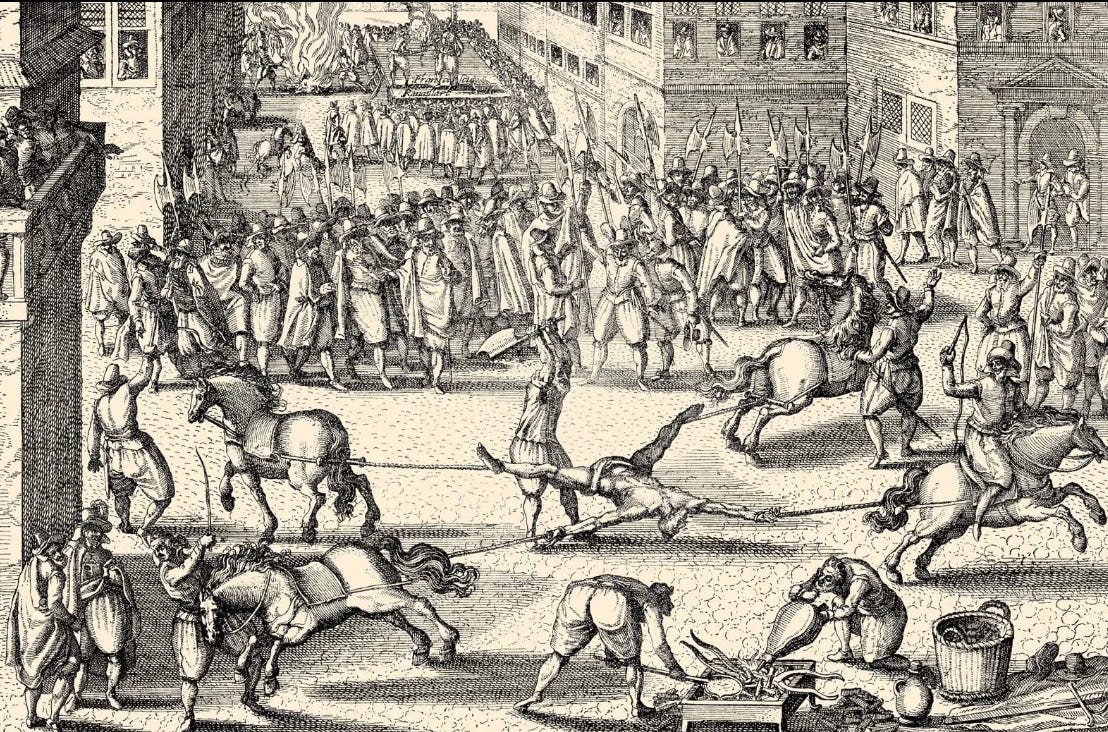






















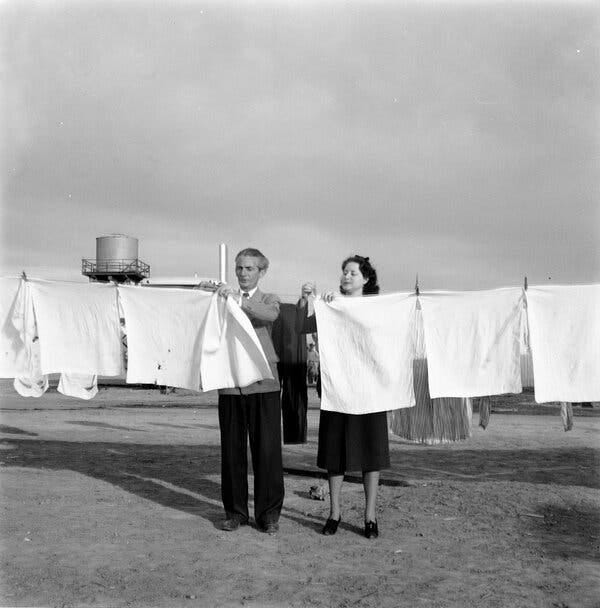


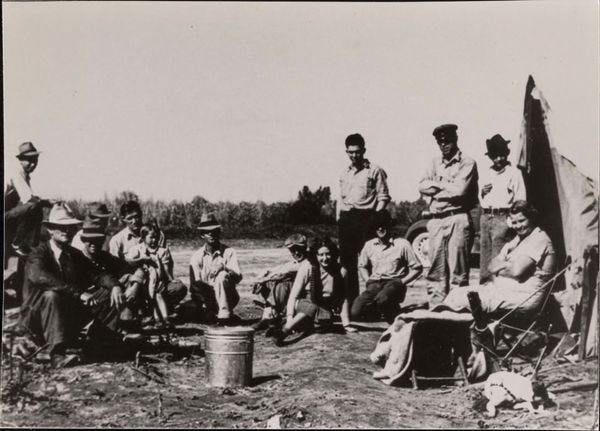
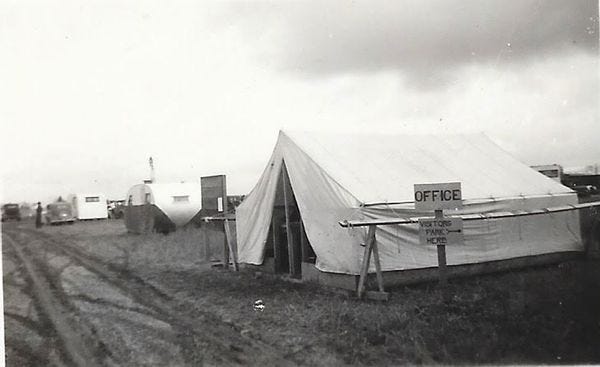

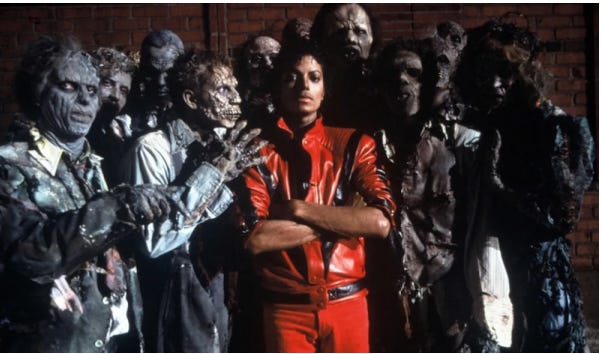
I wonder how many of the "SWISS Private Banker Network" are J*s.
--
" Swiss Bank Authority Hunger Games under Maritime Law from Geneva:
We follow orders or people die! It's just that simple.
Signs and Symbols Rule Our World. Not words, nor laws.
The Media is 100% fake, a Truman Show of scripted events, a theater of absurdity.
The politicians have ZERO authority & exist as holograms for Woke Messages.
The fake Billionaires have ZERO authority & exist as holograms for Woke Messages.
The Governors have ZERO authority and exist as holograms for Woke Messages.
The Judges have ZERO authority and exist as holograms for false narratives.
The Celebrities have ZERO authority and exist as holograms for Woke Messages.
The Hollywood stars have ZERO authority and exist as hologram influencers.
Steroid athletes have ZERO authority and exist as holograms for Woke Messages. Religious Leaders have ZERO authority and exist as holograms for Woke Messages.
The SWISS Private Banker Network has the authority and funds all Anthropology, Eugenics, NATO Warfare, EMF, SMART DUST, Molecular Communication, REAL ID, Precision Medicine, WHO Mandates, CBDC trace, track, target surveillance Programs.
Geofence lined Hunger Game Districts aka: 15-minute cities, SMART Cities, Cognitive cities, Freedom Cities, Liberty Cities or the California Forever City.
The Media is 100% partner in the concealment of WEF C-40 Biodigital Convergence."
— Connecting the Dots (Concealment Secret Society) - https://api.bitchute.com/video/b2i1FzJ64vUG/
With all this one has to ask, "where is the exit door?"
But there is none. So we're stuck like monkeys in a cage.
While some are more comfortable than most
It's all just a massive El Salvador style prison.